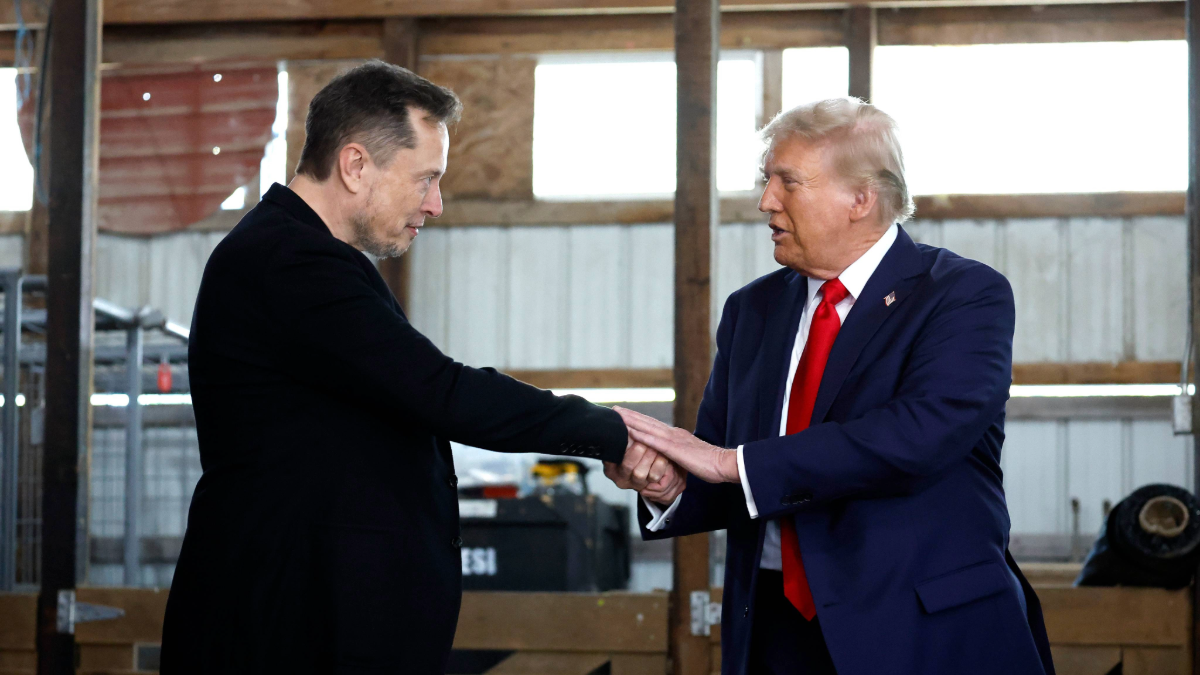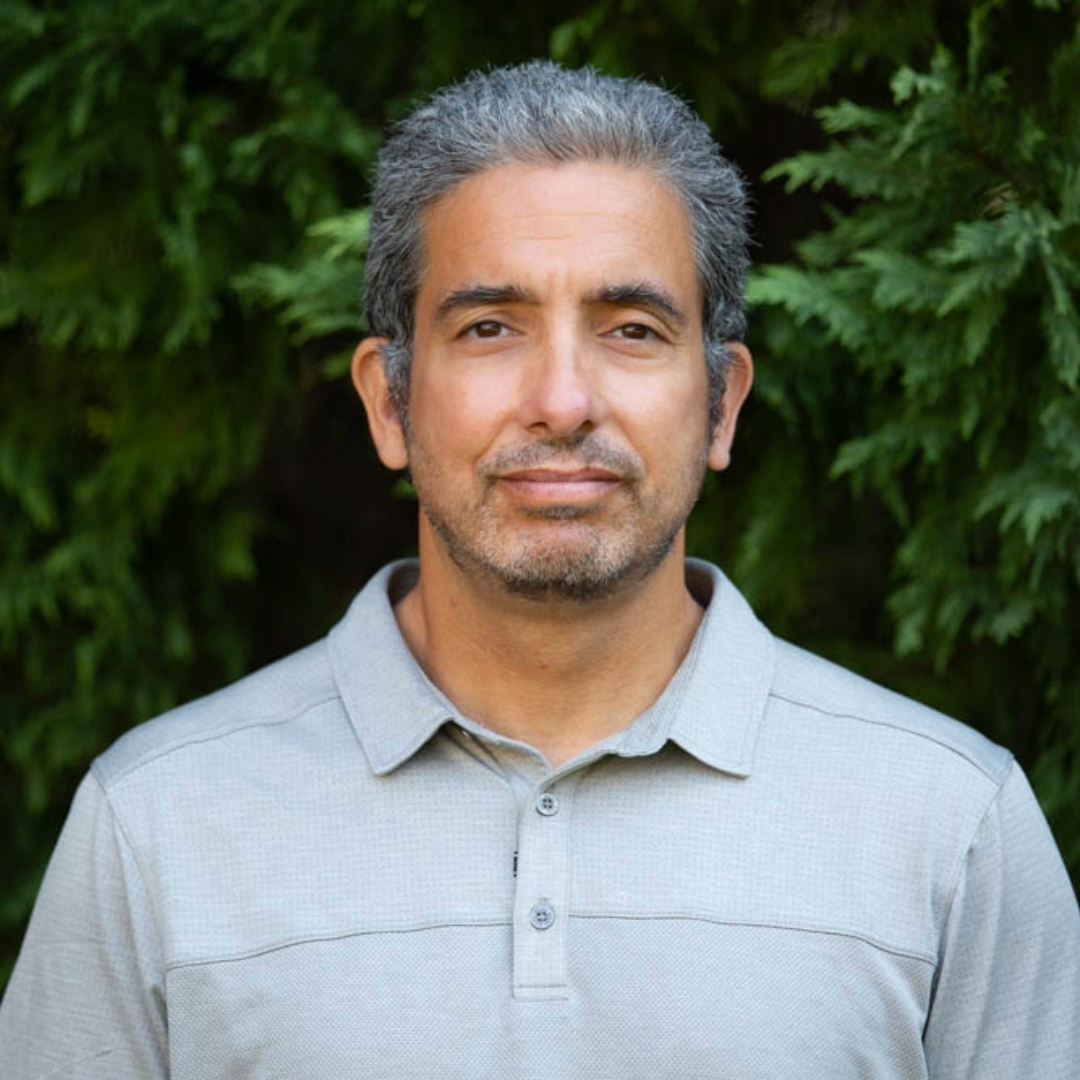Platforms and the Presidency: An Unprecedented Situation
Philip M. Napoli / Dec 3, 2024Philip M. Napoli is the James R. Shepley Professor of Public Policy and the Director of the DeWitt Wallace Center for Media & Democracy in the Sanford School of Public Policy at Duke University.

BUTLER, PENNSYLVANIA - OCTOBER 5, 2024: Elon Musk (L) shakes hands with then-Republican presidential nominee now President-elect Donald Trump backstage during a campaign rally at the Butler Farm Show grounds. (Photo by Anna Moneymaker/Getty Images)
As Donald Trump prepares to assume the presidency for the second time, and as Elon Musk prepares to begin his appointed position as co-head (along with Vivek Ramaswamy) of the newly created Department of Government Efficiency, we are entering a new and unprecedented moment in American politics. Specifically, after the inauguration, we will find ourselves in a situation in which the most powerful federal government official and one of his closest and most dedicated advisors are also owners of their own social media platforms.
Amidst all the hand-wringing and nervous speculation that has taken place in the wake of the 2024 election, this particular dimension of America’s political future hasn’t received the attention it should. The convergence of Trump and Musk’s political power with ownership of social media platforms raises urgent questions about democratic accountability and unprecedented authority over communication platforms.
The X Factor
Musk, in particular, is providing a case study in the long-simmering concern about what might happen if a prominent social media platform were to be put to use by its owner primarily as a tool of political influence. As has been well documented, Musk utilized X during the 2024 election cycle as a partisan tool, rejiggering the platform’s algorithm to amplify his, and other conservatives’, posts; using the platform to hold a campaign event for Trump; and throttling posts that included links to external sources (such as legitimate news sites).
As Musk ascends to a prominent position of influence over the Trump administration, there is absolutely nothing to prevent him from continuing to put his platform to political use in these and other as-yet-to-be-determined ways. He is already using his platform to target specific government employees that he intends to oust; which has, of course, resulted in the kind of online harassment and physical threats from Musk supporters that are now par for the course when he utilizes his platform to intimidate others.
Bigly Tech
Once President-elect Donald Trump takes office in January, he will become the first president to own his own social media platform. Truth Social is the centerpiece of the Trump Media & Technology Group and is the incoming president’s most valuable asset.
President-elect Trump, it should be noted, is not the first president to assume office with significant media holdings. Lyndon Johnson, along with his wife, owned multiple television and radio stations across Texas throughout much of Johnson’s political career. Indeed, Johnson used his political influence to help expand his media empire. When Johnson assumed the presidency in the wake of President John F. Kennedy’s assassination, Federal Communications Commission staffers and commissioners assumed that at that point, Johnson would sell off his station group. After all, as president, he would have the authority to appoint commissioners of the FCC and would hold other powers over the agency that regulated the stations he owned – a clear conflict of interest. Instead, President Johnson opted to place his broadcast stations into a trusteeship; though he remained heavily involved in the operation of the station group even while serving as president.
There have, as yet, been no indications that President-elect Trump will take even the modest step of placing his holding in Truth Social in a trust for the duration of his presidency. Rather, we could very well expect Trump to take pages out of Musk’s X playbook to figure out how to manage Truth Social for maximum political influence during his time in office. He could, of course, also figure out (like Johnson) how to utilize his political position to enhance Truth Social’s value as much as possible.
Uncharted waters
The Johnson and Trump/Musk cases highlight the fact that, although we have had a variety of media ownership regulations in the US over the years, addressing concerns such as cross-media ownership, vertical integration, and even foreign ownership, we have never had any regulations in place that prevent our political leaders from owning media platforms.
It’s one thing for the president to make extensive and influential use of a social media platform during his presidency – as Trump did with Twitter. Media history is filled with examples of US presidents, or presidential candidates, trying to leverage media technologies for maximum political influence, whether it be FDR’s “fireside chats” over the radio; Dwight D. Eisenhower becoming the first presidential candidate to run political ads on television; billionaire third-party candidate Ross Perot simultaneously buying time on the three major broadcast networks to air his political “infomercials”; or Barack Obama’s sophisticated use of email, web pages, and social media to reach voters directly.
However, for the president to own the media platform itself is another matter entirely. As we witnessed with Trump’s expulsion from Twitter and other major social media platforms in the wake of the January 6, 2021 insurrection, even the President can be held to basic guardrails of social media behavior. When the president – or his appointed officials – are the owners of these platforms, no such guardrails exist, and we find ourselves in the kind of state-run media scenario that we typically associate with totalitarian regimes.
From this standpoint, the fact that the leader of the country, and one of his most influential advisors, each own major social media platforms, is fundamentally at odds with basic democratic norms. Does the very status of these platforms need to change, from a First Amendment standpoint, when they evolve from being owned by private citizens to being owned by public officials?
McGill University Center for Media, Technology, and Democracy director Taylor Owen recently wrote that we are on the verge of “an unprecedented fusion of Silicon Valley's power with state authority.” A key aspect of this fusion is the combination of media power with state authority. We now face a scenario in which the White House will have two major social media platforms at its disposal to influence voters, other government officials, interest groups, and even foreign governments. This is a step beyond anything we have ever seen before in terms of the media power and influence of the presidency.
Authors
